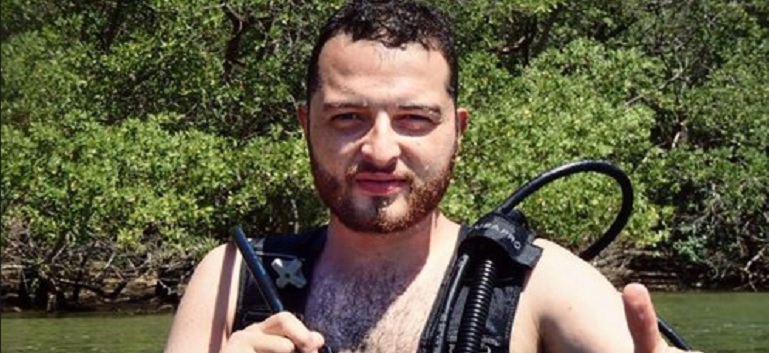A student in Colombia is facing up to eight years in prison for a breach of on-line copyright laws in a case which open rights groups have described as ‘absurd,’ reported international media.
In major Colombian cities such as Bogota and Medellin, counterfeit DVDs and CDs are sold openly in street markets with an apparent lack of concern about criminal punishment, but for publishing the article while researching reptile and amphibian conservation Gomez faces a possible sentence of four to eight years and fines of up to $327,000, according to UK newspaper The Guardian on Monday.
It should be noted that for serious sexual assaults the maximum sentence is 6 years and is on par with the 8 years in prison handed down to 46 Colombian paramilitaries accused of homicide, forced displacement, torture and sexual violence after Colombia former-president Uribe’s Justice and Peace Law of 2006.
MORE: Former paramilitary commander sentenced to 8 years in Colombia prison
Diego Gomez, a biodiversity conservation Masters student at the University of Quindio, is facing serious criminal charges after sharing a peer’s thesis on the commonly used sharing website Scribd in 2010.
Gomez claims that he published the article as a means of sharing the information with students who otherwise would not have been able to access it, and that he had no intention of gaining financially from his action. A complaint was filed by the author of the article one year after it was published and the case will go to court on September 2nd .
Colombia under pressure over copyright
Colombia has been under added pressure from the United States to enforce intellectual copyright laws since a internet copyright protection policy was overturned in January 2013 by the Constitutional Court and has been featured on a US copyright laws watch-list since 2009. Gomez is being charged under a law created in 2006 after the creation of a Free trade agreement between Colombia and the US.
MORE: Colombia on intellectual property rights watch-list: US report
MORE: Internet copyright law ruled unconstitutional
The current laws in Colombia protecting intellectual property have been described as “too broadly worded” by Carolina Botero, director of Fundacion Karisma, a Colombian digital rights group.
The group was quoted by The Guardian as saying the laws must be changed to allow sharing of academic materials for non-profit purposes.
Gomez argued that the current laws were created more than 20 years ago and are too rigid for the current digital age.
Court proceedings for Gomez’s case begin on September 2nd. His legal team hope that leniency will be shown due to the lack of any monetary gain from the offense.
Conviction ‘unlikely’
Science Insider reported that Oscar Lizarazo, a lawyer who specializes in intellectual property at the National University of Colombia suggested that a conviction was unlikely as Gomez did not intend to harm the author’s rights or profits. Lizarazo speculated that if held criminally responsible, Gomez would probably receive a significantly lower penalty.
Open rights groups hope that this case will illuminate the need to modernize Colombia’s legal system and copyright laws to the more liberal internet age legislation of countries such as the USA.


